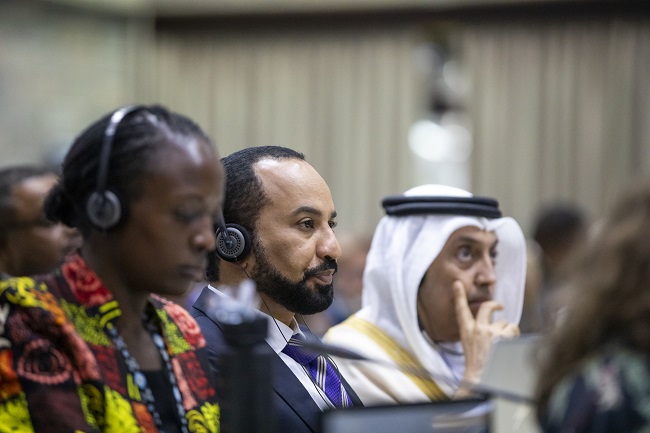The resumed second session of the United Nations Habitat Assembly concluded on Friday, May 30, 2025, in Nairobi with a renewed global commitment to sustainable urban development and a bold new direction to confront one of the world’s most pressing challenges: the global housing crisis.

At the heart of the Assembly’s outcomes was the adoption of UN-Habitat’s Strategic Plan 2026–2029, which places housing, land, and basic services at the centre of sustainable urban transformation. The plan aims to accelerate inclusive, climate-resilient, and equitable development in cities and communities – particularly in countries grappling with climate change, conflict, and inequality.
“The Strategic Plan we have adopted is ambitious yet firmly grounded in realism,” said Anacláudia Rossbach, Executive Director of UN-Habitat. “We look to our Member States to honour their commitments and continue their generous contributions, so that together, we can deliver transformative impact where it is needed most.”
The Plan aligns with global priorities set out in the New Urban Agenda and the 2030 Agenda for Sustainable Development, positioning adequate housing as a fundamental driver of progress toward the Sustainable Development Goals.
Speaking on behalf of the host country’s President, Alice Wahome, Cabinet Secretary, Ministry for Lands, Public Works, Housing and Urban Development of Kenya, said: “The right to adequate housing must transition from principle to practice…This session has reinforced our shared responsibility to action.”
World Urban Forum 13: Baku 2026
Looking ahead, the Assembly confirmed that World Urban Forum 13 (WUF13) will be held in Baku, Azerbaijan, in 2026 under the theme: “Housing the world: Safe and resilient cities and communities.”
The theme reinforces the global housing agenda and builds on the outcomes of WUF12 and the Cairo Call to Action, highlighting housing as a cornerstone of climate adaptation, social inclusion, and economic opportunity.
“We are determined to work closely with a wide range of partners to make WUF13 in Baku a major milestone for the global housing agenda,” said Anar Guliyev, Chairman of the State Committee on Urban Planning and Architecture of Azerbaijan and WUF13 National Coordinator.
New leadership and renewed governance
The Assembly also elected new leadership for its governance bodies. Malaysia will serve as President of the United Nations Habitat Assembly from 2025 to 2027, with the United Arab Emirates taking over the presidency from 2027 to 2029.
Both countries will also share a seat on UN-Habitat’s Executive Board, with the UAE assuming the role for the first two years, followed by Malaysia. The Assembly also elected 36 new members to the Executive Board.
